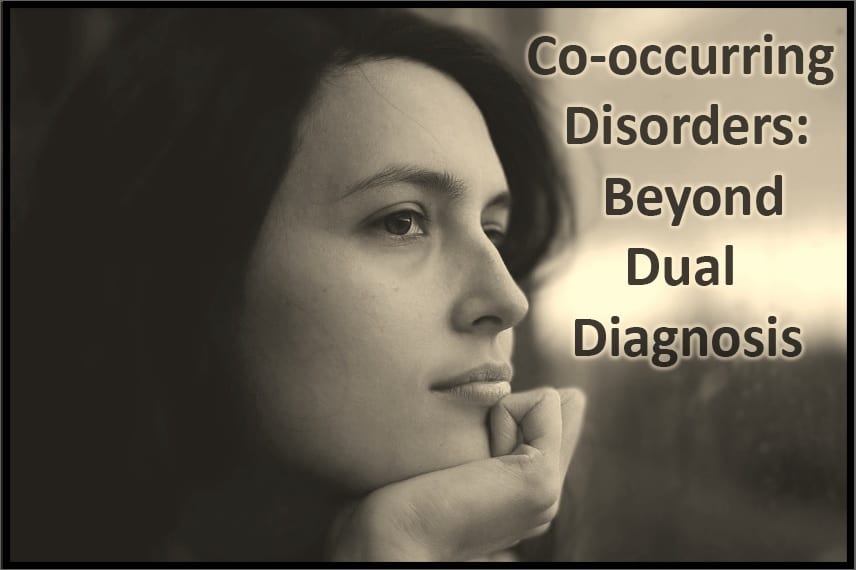Last fall for the third talk in Laurel House/RtoR’s Family Seminar Series, our featured speaker Dr. Jeremy Barowsky pointed out that we had used the outdated term “dual diagnosis” in our promotion of the event. Dr. Barowsky is the Director of Addiction Medicine at Greenwich Hospital Addiction Recovery Center. He also has a private psychiatric practice where he treats people for mental health and addiction disorders, often at the same time.
Dual diagnosis is a term that goes back to my early days in mental health when we tended to look at mental illness and addiction as frequently overlapping but essentially separate issues. In those days, if you had problems in both areas, you probably went to an addiction treatment provider for your drug and alcohol issues, and a mental health provider for your psychiatric issues.
If you were lucky, you might be able to get treated for both sets of issues at the same time. But many providers insisted that you clear up one problem before starting on the other. That left a lot of people without a treatment option.
Mental health providers might turn away their psychiatric patients who were actively using substances. And many self-help groups on the addiction side encouraged their members to not take mental health medications, which they saw as more substances to be abused.
In the 1980’s some providers and self-help programs started offering “double trouble” groups that dealt with both issues simultaneously. The problem with this approach is that it is based on a false choice. Whether you call it “dual diagnosis” or “double trouble”, the implication is that there are two different problems which need to be treated separately.
When Dr. Barowskly gently chided us for using that outdated term, he was pointing to a problem that still exists in treatment circles: the two-sided approach to substance use and mental health. Today, the preferred term is “co-occurring disorders,” which acknowledges that problems of behavioral health frequently occur together and often in numbers greater than two. As for treatment, it makes sense that multiple disorders which occur together should also be treated together, preferably by the same provider, in the same setting, in a comprehensive, integrated fashion.
Identifying Co-Occurring Disorders
Co-occurring disorders are actually quite common in people who experience problems of behavioral health. According to the Substance Abuse and Mental Health Services Administration (SAMHSA) 42.8% of adults with a substance use disorder also have a co-occurring mental illness.
Although common, co-occurring disorders can be difficult to diagnose. Symptoms of substance abuse and mental illness can be easily confused and often mask each other. A person with multiple disorders might attribute her problems to one disorder, while minimizing or ignoring the presence of others. It is also common for people with psychiatric disorders to use substances to self-medicate and get relief from symptoms.
If someone you know has not responded well to treatment for one type of problem (substance use or psychiatric), he may actually have multiple disorders. Here are some signs that co-occurring disorders may be the problem:
- history of not responding well to treatment for only one disorder
- family history of both substance use and mental illness
- unusually high sensitivity to alcohol and drugs
- substance use that begins after psychiatric symptoms first appear
- presence of symptoms even when the person is sober
The best approach to dealing with a problem of co-occurring disorders is integrated treatment. Effective treatment depends on all disorders being treated at the same time, in the same place, by the same team of professionals.
Dr. Barowsky is an RtoR Family-Endorsed Provider who is double-boarded in psychiatry and addiction medicine. As such, he is qualified to provide integrated treatment for co-occurring disorders through his private practice in Greenwich, CT and the clinical treatment program he directs at the Greenwich Hospital Addiction Recovery Center.
If you believe that you or someone you know may be struggling with co-occurring disorders for substance use and mental health, we can help you find the right resources for integrated treatment in your community. Email us at help@rtor.org to set up a phone appointment with a Resource Specialist, who can provide you with personalized information and assistance. This is a free service of www.rtor.org, which seeks to help families and their loved ones connect with the best mental health resources in Connecticut, New York, New Jersey and Massachusetts.
Recommended for You
- Silver Hill Hospital: My Family’s 35-Year History with a National Leader in Quality Mental Health Care - February 7, 2023
- Connecticut Mother Who Lost a Son to Overdose Shares Her Story and Hosts Wilton Fundraiser to Benefit Laurel House - November 9, 2022
- Laurel House Offers $10,000 Racial Equity Scholarship for a Black or Hispanic Student Pursuing a Master’s of Social Work Degree - June 8, 2022






Thank you Jay for your insight on co-occurring disorders and the information on proper treatment. Your writing makes the most complex information clearer and more easily understood. This article will help many people.
I think our industry falls short when it comes to treating individuals who suffer from substance abuse. Thank you for shedding light on this topic.